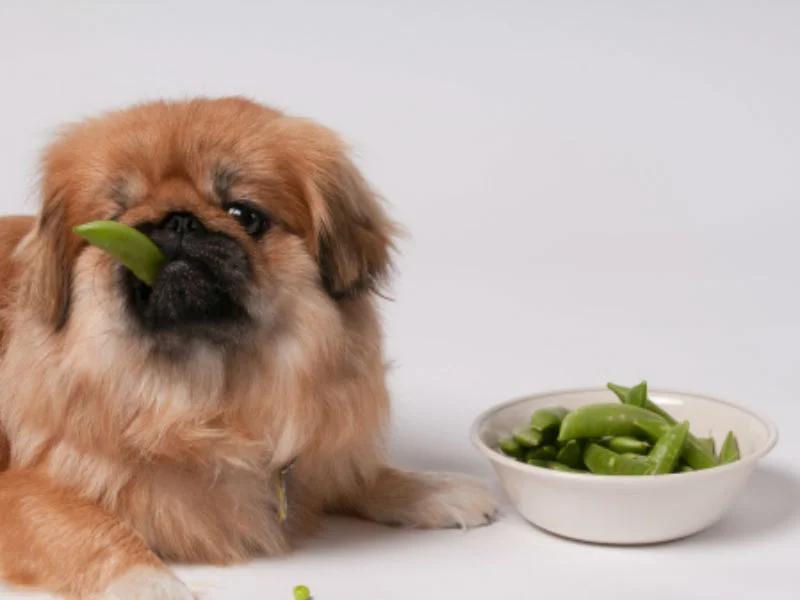
When it comes to sharing food with our beloved canine companions, it’s crucial to understand what’s safe and what’s not. One vegetable that often finds its way onto our plates is mangetout, also known as snow peas or snap peas. But can dogs eat mangetout safely? Let’s dive into 7 essential facts to help you make an informed decision about including mangetout in your dog’s diet.
Nutritional Value of Mangetout:
Mangetout is known for its crisp texture and slightly sweet flavor, making it a popular choice among humans. These vibrant green pods are a good source of dietary fiber, vitamin C, vitamin K, and various antioxidants. However, while mangetout can offer some nutritional benefits, its suitability for dogs requires closer examination.
Digestibility and Fiber Content:
Dogs have different digestive systems compared to humans, and their ability to break down certain foods can vary. Mangetout pods are fibrous, and while fiber is generally beneficial for digestion, too much can cause gastrointestinal upset in dogs. Introduce mangetout gradually and in small amounts to gauge your dog’s response.
Choking Hazard and Precautions:
One of the primary concerns with feeding mangetout to dogs is the potential choking hazard posed by the tough strings along the pods. These strings could become lodged in your dog’s throat or digestive tract. To mitigate this risk, consider removing the strings and cutting the pods into smaller, manageable pieces before offering them to your dog.
Sugar Content:
While mangetout is relatively low in sugar, dogs have a different tolerance for sugar intake compared to humans. High sugar content in a dog’s diet can lead to obesity, dental issues, and even diabetes over time. Moderation is key when offering mangetout or any other treats to your furry friend.
Allergic Reactions:
Just like humans, dogs can develop allergies to certain foods. Before introducing mangetout, observe your dog for any signs of allergic reactions, such as itching, swelling, vomiting, or diarrhea. If you notice any adverse symptoms, discontinue feeding mangetout and consult your veterinarian.
Balanced Diet Consideration:
While mangetout can be a healthy addition to your dog’s diet in moderation, it should not replace their regular balanced dog food. A complete and balanced commercial dog food is specifically formulated to meet your dog’s nutritional needs. Consult your veterinarian before making any significant changes to your dog’s diet.
Consulting Your Veterinarian:
Every dog is unique, with its own dietary requirements and sensitivities. Before introducing mangetout or any new food into your dog’s diet, consult your veterinarian. They can provide personalized advice based on your dog’s health, age, weight, and any pre-existing conditions.
Conclusion:
The question of whether dogs can eat mangetout safely requires careful consideration. While mangetout can offer some nutritional benefits, there are several factors to take into account, including its fiber content, potential choking hazard, and sugar content. Moderation and precaution are essential when introducing new foods to your dog’s diet. As a responsible pet owner, consulting your veterinarian before making dietary changes is crucial to ensure your furry friend’s health and well-being. Remember, a well-balanced and tailored dog food remains the foundation of your dog’s nutrition.
